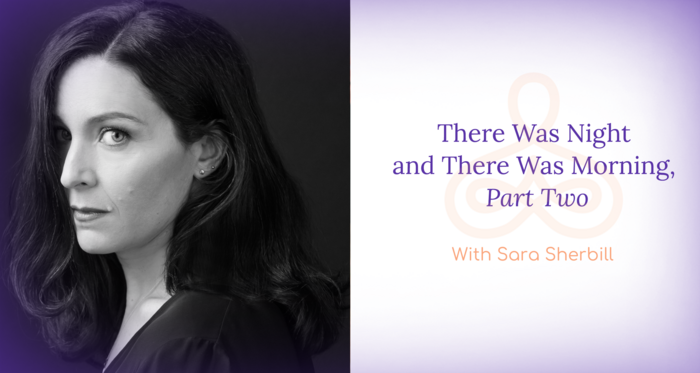In a recent episode of the Healthful Woman podcast, “There Was Night and There Was Morning, Part Two,” Host Dr. Nathan Fox and Sara Sherbill continue their discussion on her book, “There Was Night and There Was Morning: A Memoir of Trauma and Redemption.” They talk about Sara’s goal with her book, feedback, and feelings about her book.
Sara’s Goal in Writing a Book
Sara’s motivation for writing her memoir stemmed from both personal healing and a sense of responsibility. She shared, “It is gratifying to feel that I can touch someone, that I can impact someone, and that maybe I can make someone feel just a tiny bit less alone the way that that teacher did for me in high school.” The process of writing was therapeutic for her own mental health. But her purpose evolved after learning that her father had also abused other members of his congregation. Sara shared, “There is something particularly horrible about a rabbi being abusive, right, in a way that maybe isn’t the same way for a shoe salesman to be abusive, because you’re proclaiming one thing and then you’re doing something that’s undermining that very thing in the worst possible sense.”
Sara’s Approach to Writing
Writing a memoir required careful thought about how her words would affect others. Sara changed names and certain details to protect her family’s privacy, but still had to consider the impact on her family. She was mindful of how her siblings and mother might be affected. Sharing her experience with her extended family evoked both positive and negative feedback.
Sara’s Feedback
The book brought her mother and siblings closer together. However, the response from her father’s side of the family was more difficult. Some relatives acknowledged the truth of what had happened but objected to her sharing it publicly. She has lost all contact with that side of the family. “I’ve been told my whole life, don’t talk about this.”
Growing up, Sara says she tried to confide in members of her father’s family, but her concerns were dismissed. At one point, an aunt told her, “You don’t really understand what goes on between a husband and wife.” Looking back, she sees that minimizing is a way of upholding silence.
Sara’s Reflection on How Her Trauma Shaped Her
Sara reflects on how trauma shaped her. “I would be a totally different person,” she says. Without years of abuse, she believes she could have avoided severe anxiety, depression, and self-harm. She emphasizes that surviving abuse doesn’t mean everything is fine now. Sara shared, “There is a price to be paid for experiencing abuse. You know, anyone who’s listening, don’t think, you know, well, I experienced abuse, but now I wrote a book about it and everything’s fine. It’s not fine. It’s not fine. I’m still carrying with me, you know, a lot of hard stuff.”
Sara’s Religion
Given her father’s role as a rabbi and abuser, Sara says it would make sense for her to reject religion entirely. “I have every reason to hate God, hate religion, hate Judaism, hate all of it. Throw it in the garbage. But here’s the irony. That’s actually part of what helped me survive was my connection to God, my connection to prayer, my connection to observing the Sabbath. Those things gave me strength. And prayer.”
Learn More
To listen to Sara’s full story, listen to the Healthful Woman podcast today. For women’s health concerns, contact Carnegie Women’s Health by completing our online contact form.

